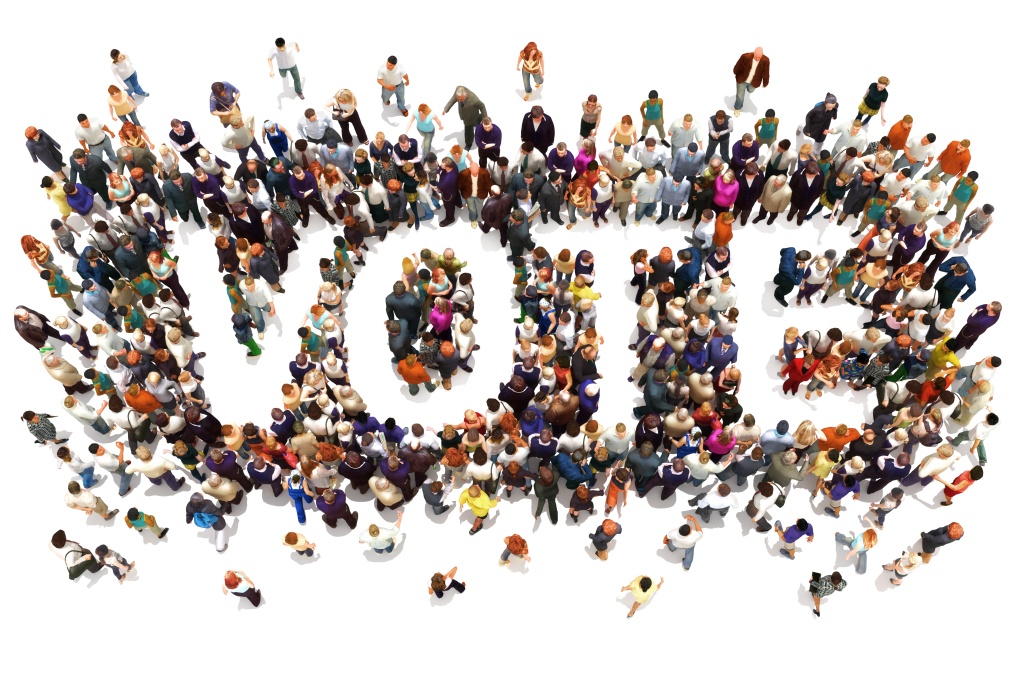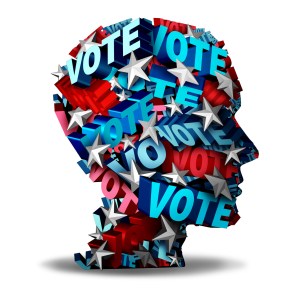 If you’ve been conscious for the last decade or so, you’ve heard this slogan a lot from Donald Trump and his constituency.
If you’ve been conscious for the last decade or so, you’ve heard this slogan a lot from Donald Trump and his constituency.
But what does it mean?
I’m not a political junkie; I’m a word nerd, so I thought I’d approach the phrase from the perspective of language. I’ll leave the verb out of this discussion (if anyone wants to make a run at it, go ahead). I’ll concern myself with the terms “America,” “Great,” and “Again.”
America. What do we mean when we say “America”?
First, and perhaps obviously, we don’t all mean the same thing. Some people define America as “the greatest nation that God ever put on the planet.” But we’ll get to great later. Let’s stick to America for now.
The geography of America really is great. We’ve got those amber waves of grain, mighty redwoods, rocky shores, gorgeous beaches, and a really grand canyon. But that’s just real estate. Without people, all you’ve got is empty space.
So. People. Americans. Now comes some of the language theory. Whatever comes without a hyphen or adjective is considered the norm – standard, real, if you will. Anything with a hyphen or adjective is considered outside the norm and must be defined by that – African-American, Mexican-American, Muslim-American. The language involved implies that true Americans need no hyphen or adjective, and that’s apparently what many people believe – that if you’ve got a hyphen or an adjective, then you’re not really an American, or at least not as American as someone without an adjective or hyphen. Ironically, this means that the original Americans, the people who lived here before the rest of us immigrated, are no longer considered standard Americans. They need an adjective – Native American.
But America is all its people. not just those without hyphens. Immigrants too, which except for the Natives we all are. If the immigrants are illegal (another often-used adjective), they may not be considered real Americans, but they are part of the American workforce, doing the jobs that other Americans don’t really want because of low pay and unpleasant working conditions – gardening, child care, domestic service, agricultural work, and so on. Without their work and their contribution to the American economy, America would be a very different place. Many of them desperately want to become citizens, but even if they do, they’re still hyphenated Americans.
Should they be considered Americans? Right now any of them born in the United States are simply and legally U.S. citizens. The Constitution says so. If that needs to change, so does the Constitution, and that’s no simple matter. What the Constitution really says is, to me, something that ought to be taught in every American school, in every grade, until the people understand such apparently perplexing concepts as what freedom of speech means and how difficult it is to change or amend the Constitution. Maybe this was supposed to have been taught, but evidently, it didn’t stick with many former students.
For example, the President cannot by himself (or herself) change the Constitution. If anyone wants an amendment that would not grant citizenship to everyone born on U.S. soil if they were born to illegal immigrant parents, or to cancel the Second Amendment (to choose two not entirely random examples), there is a long, difficult process involving not just Congress, but the states. A certain number of states must approve –ratify – the new Amendment and have only a limited time to do so. It’s harder than you think. That’s the kind of thing that ought to be taught in school. No one just waves a hand and takes away birthright citizenship or guns.
Great. All of that leads us to the question of what great means, in the context of America. I think it’s great that America can add new amendments to the Constitution when they think of a new idea (like Prohibition) and repeal amendments that turn out to be really bad ideas (like Prohibition).
Other things that are great become not-so-great when you take them too far. Strength is great; being a bully isn’t. Free speech is great; terrorist or assassination threats, not so much. (Free speech is another idea that ought to be taught in school. It doesn’t mean what many people seem to think it means. But that’s a discussion for another day.)
The thing is, you don’t get to be great simply by saying that you’re great. That’s like calling yourself a karate black belt or a tenured professor or a Senator or even a McDonald’s manager. Those are things you have to earn. You have to do great things, like joining other nations in defeating Hitler, or having ideas like “no taxation without representation,” or saying things like “all men are created equal” – and putting them into practice. That’s the tricky part.
Let’s face it, we’re never going to all agree on what “great” means. I may be a great poker player, but to someone else that’s not great, it’s being good at a silly, materialistic game. Another person may scoff at a parent who’s great at decorating elaborate birthday cakes – but that parent is showing love of family and creating something great for others. Is a chef great? Is a food bank volunteer? Is a pro athlete great? Is a high school coach? Many times it’s in the eye of the beholder.
So, is America’s greatness in the eye of beholders? Are we saying great things but not putting them into action? Do the opinions of the rest of the world count? Because a lot of other people and other countries – and some Americans – seem to think that America falls short in some aspects of greatness. Refusing to abide by treaties we have signed. Quibbling over the meaning of “torture” instead of just not doing it. Not doing right by our veterans in terms of housing, health care, and jobs.
Some other countries are greater than we are in certain areas – mathematically, provably so. Many other countries’ education systems produce students who outscore ours in math and reading. Some unexpected countries such as Estonia and Singapore have lower maternal death rates than America does. Are not educational achievement and maternal health great things, and do we not fall short in them? Or is America always great in all things?
Again. The word “again” implies that there was once a time when America was great, but that we no longer are. It used to be that saying America isn’t great was a serious political mistake, but apparently now it’s okay.
To say “make America great again,” (once we’ve figured out “America” and “great”) we must define a time in the past when America was great, that we now need to return to.
So when was that time?
As a character in Seanan Maguire’s novel Once Broken Faith says, “Anyone who says the past was perfect is a liar and wasn’t there.”
What about at the founding of the country? Wasn’t America great then? Yes, it was a great time of great ideas to build the foundation of a great nation. But it wasn’t so great for anyone who wasn’t a white, male, adult landowner. Those were the only people who had much say in what America would be and what would make it great. Imagine if today no one who rented a house or apartment were allowed to vote; if women were the property of their husbands; if there were no laws against child abuse; if an entire segment of society suffered the cruelties of enslavement. Not so great, eh?
What about the Fifties? Ozzie and Harriet and Father Knows Best? (Never mind that those were Hollywood fictions, not documentaries, and no more real than The Walking Dead or The Simpsons.) Again, the fifties were not great for everyone – domestic abuse victims, children targeted by sexual predators, drug addicts, the mentally ill (which at the time included homosexuals, according to the DSM, the psychiatric “Bible”), and too many others to name. These are not recent phenomena. We just didn’t have names for some of them at the time, or kept them behind closed doors, unspoken and ignored.
The Sixties? The Eighties? Any decade – any year – you look at, is a mixture of great things and not-so-great things. Can we really go back to the great ideas, accomplishments, and institutions, without going back to the wars, injustices, and problems that co-existed with them? Even if we have learned from our errors so we wouldn’t repeat them (a dubious concept at best), can we really believe that the world – that America – would exist in a stasis of greatness with no new difficulties and horrors to face?
Make America Great Again. It’s a great slogan, until you look at it more closely. As always with slippery language, there’s a lot lying hidden under the surface. Let’s drag it out and talk about what it means, and how we really can improve America.
Wouldn’t that be great?


 I’ve been longing for the political season to be over – for the election and the vote counting and the inauguration, so that at least by January, we can all get back to normal life, whatever that is.
I’ve been longing for the political season to be over – for the election and the vote counting and the inauguration, so that at least by January, we can all get back to normal life, whatever that is. If you’ve been conscious for the last decade or so, you’ve heard this slogan a lot from Donald Trump and his constituency.
If you’ve been conscious for the last decade or so, you’ve heard this slogan a lot from Donald Trump and his constituency.